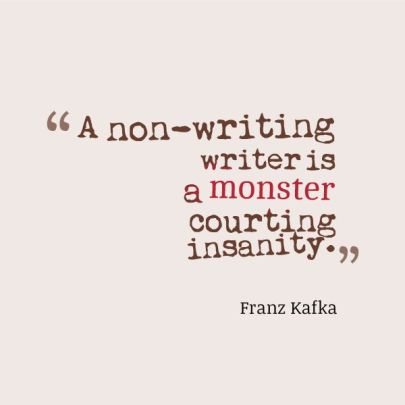Storgy is a high-caliber literary site, lovingly edited by a staff of creatives who are passionate about art, film, and books. I can’t tell you how honored I am to be featured on Storgy among so many talented writers. I’m looking forward to having Storgy on the blog soon. In the meantime, check out my interview today and celebrate with a free copy of Sick (with its updated cover).
About Storgy Magazine
STORGY was founded in 2013 by Tomek Dzido and Anthony Self as a means by which to explore the short story form and engage with readers and artists alike. An online literary short story magazine consisting of a core group of dedicated writers, STORGY aims to inspire artistic collaboration and provide opportunities for creative minds to meet.
INTERVIEW: Christa Wojciechowski
So Christa, thank you for having this interview with us, we were interested to learn that you used to tame lions and chase storms; how did this come about and why?
When I lived in Florida, I managed a private animal sanctuary that was open to the public. I took care of nearly a hundred animals. We had tigers, lions, cougars, leopards, lynx, primates, canines, bears, macaws, a camel, llamas, deer, a horse, a donkey, an otter, raccoons, and a wallaby. There were also snakes, lizards, turtles, alligators, all the way down to scorpions and tarantulas.
The big cats were all fed by hand. I had to hack up eighty pounds of bloody horse meat each day for the carnivores. Then I’d chop up buckets of fruit and vegetables for the herbivores. We bred rats and mice to feed the snakes. There was lots of poop. Lots. It was a dirty, laborious, and dangerous job, but I loved each of those animals as if they were my own children.
A few years later, the animal sanctuary was forced to shut down because they were widening the highway in that area. That’s when I went to work with my dad at the power company. In 2004, we had a crazy series of hurricanes – Charley, Frances, Ivan, and Jeanne. During emergencies, all the staff at the power company is called in for hurricane duty. This means you work about 16-20 hours a day in very dangerous conditions. My dad and I teamed up to go survey the power lines to see if there were any urgent situations and to tell the crews where the damage was. We also turned on some customers’ power while we were there. That was not protocol, but we did it anyway, and they were very grateful.
Your website says that you’re an Internet marketer which can be a full time job in itself, so when did you first discover your passion for writing? And how do you find the time with all the other things you seem to be doing?
I was a child when I first discovered my passion for writing, but I never committed to it until I moved to Panama. I couldn’t legally work here so I had a lot of free time and solitude. I decided to try writing a memoir about experiences I had in my new country. I’ll probably never publish it, but it broke the seal and helped me to realise that I had the ability to finish stories.
My job as an internet marketer came later. I used to just help family and friends with their websites and social media. It was a part-time gig for travel and Christmas money. Now it’s a full-time operation that continues to grow. I have had no time to write during the past six months and am a little grouchy because of that. You know what Kafka says about a non-writing writer, so I’m planning to turn my freelance operation into a firm and hire some people to join my team. I’m also in the process of developing some e-courses to generate passive income.

Your fiction, in particular the Sick series, demonstrates an incredibly subtle style of Horror-writing that arises from psychology and character. How did you come to develop this unique style?
This is a great question because I never consciously planned this story or the characters. I had a nightmare about this pale, sick man covered in bruises. I think he had a broken leg. I was his wife–not myself, but another woman entirely. The bedroom was disheveled and dirty. The scene was repulsive to all five senses, but the most frightening part about it was the way this woman I inhabited felt. Her husband was obviously very, very ill and yet he exuded this powerful menace. The uneasy feeling of the dream stuck with me, and after some months I decided to purge it by writing it as a story.
The psychological aspects of your writing are one of its greatest strengths. Where did your fascination with the human mind arise? Can you name a key event or moment in your life that triggered your interest and desire to explore further?
I’ve always rooted for the deranged characters in books and movies. I’m drawn to the troubled souls and insane villains, but I know I’m not alone in this. Everyone loves a good pyscho or they wouldn’t be so popular.
Some of my family members have been diagnosed with mental illnesses. I, too, went through times in my life where I felt like I might lose my mind (I’m really not quite sure if I haven’t). I’m mystified by how thoughts and emotions can break your sanity. Sure, some brain diseases can be seen in a scan, but most mental illness is in the intangible. You can look at the brain and it will be physiologically sound, but the person is incapable of functioning. It’s this invisible entity that is damaged. How does that happen? How does this ethereal organ break?
What makes it even more interesting is that the mind can repair itself through words. Therapy or writing can fix mental illness–words, which are nothing but a sound vibration. They are ink marks on paper. They’re black pixels on this screen, and they have the potential to destroy and heal. It’s all very spooky when you think about it.
Continue reading this interview on Storgy

